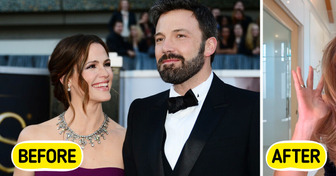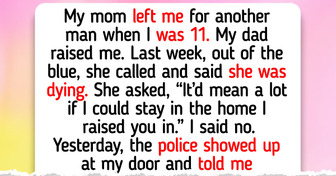“Another Star With Far Too Many Fillers.” Tom Cruise Doesn’t Resemble Himself in the New Photos


Apologizing is a crucial aspect of maintaining healthy relationships and resolving conflicts. However, not all apologies are created equal. Some can come across as insincere or manipulative, which can exacerbate the situation rather than mend it. Understanding the different types of apologies, especially those that fall short of genuine remorse, can help us navigate and improve our interactions.
Here’s a detailed look at various types of apologies and why they might not hit the mark.
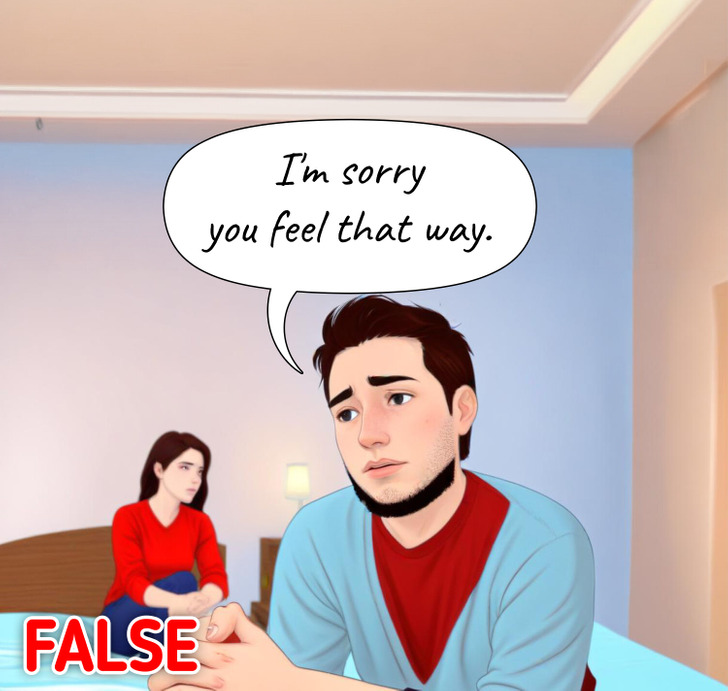
By saying, “I’m sorry you feel that way,” the speaker implies that the problem lies in the other person’s feelings rather than in the speaker’s actions. This type of apology fails to acknowledge any specific fault or mistake, making it more about placating the other person than addressing the real issue.
This type of apology avoids taking responsibility for one’s actions. It suggests that the other person’s feelings are the problem, not the behavior that caused them. As a result, it can come off as dismissive and insincere.


Psychologists suggest that an apology containing the words “I’m sorry” but followed by an “if” or a “but” lacks sincerity. The addition of “but” can actually negate the apology’s impact, while “if” implies doubt about the validity of the other person’s feelings. In contrast, a true apology takes full responsibility for the wrongdoing and validates the emotions of the person who was hurt, without making excuses or diminishing their experience.
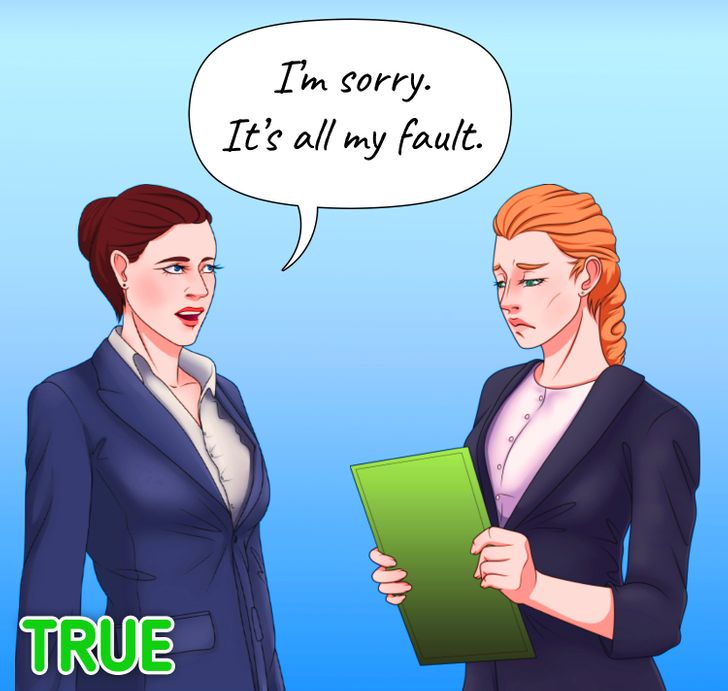

A quick fix apology is vague and avoids specifying what was done wrong. By saying, “Sorry for whatever I did,” the speaker acknowledges that something went wrong but fails to clarify what the issue was.
This type of apology lacks specificity and can come off as dismissive because it does not address the particular behavior or action that caused the problem.
A heartfelt apology is concise and sincere, requiring few words to convey genuine remorse. In contrast, a fake apology tends to be overly verbose, filled with excessive explanations and details that often mask the true feelings of the person offering it.
A disingenuous apology often features passive voice, using phrases like “the things you were affected by” or “mistakes were made.” Such wording, commonly seen in public statements, acknowledges wrongdoing but avoids assigning direct responsibility by speaking passively. Unlike active voice, which clearly identifies the individual responsible (“I made the mistake”), passive voice phrases fail to specify who is accountable, making the apology seem less sincere.
When someone starts an apology with “They told me to apologize,” it indicates that the apology is not coming from a place of genuine remorse. Instead, it suggests that the individual is only apologizing because someone else believes it’s necessary, and they might not have offered the apology on their own.
Dan Neuharth, Ph.D., MFT, identifies several phrases that often signal a disingenuous apology:

A self-centered apology focuses on the other person’s reaction rather than the actual issue. By saying, “I’m sorry you’re making such a big deal out of this,” the speaker implies that the problem lies in the other person’s response rather than in their own actions.
This type of apology can be dismissive and invalidating. It suggests that the other person’s feelings are exaggerated, rather than acknowledging the impact of the speaker’s actions.

Blame shifting apologies attempt to deflect responsibility by focusing on the recipient’s reaction rather than the action that led to it. By saying, “I’m sorry you were offended, but I was just trying to help,” the speaker acknowledges the offense but tries to justify their actions by claiming good intentions.
This type of apology can come off as insincere because it suggests that the speaker’s intentions are more important than the impact of their actions. It fails to address the root cause of the offense.

It can be seen as an attempt to end the conversation rather than a genuine apology. By repeatedly saying “sorry,” the speaker may be trying to placate the other person rather than engaging in meaningful resolution.
This type of apology can seem like a way to avoid taking responsibility or discussing the issue further. It may appear that the speaker is more interested in ending the conversation than in resolving the conflict.
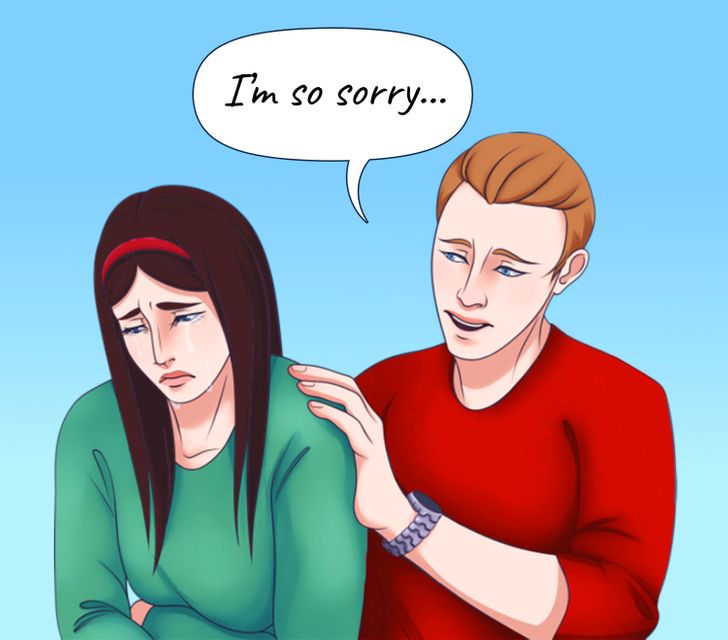

The essence of a genuine apology lies not just in the words but in the actions that follow. A sincere apology involves taking concrete steps to address the harm caused and making amends for the initial wrongdoing. It means translating words into actions and ensuring that the mistake is not repeated. This commitment to correcting the wrong and preventing future occurrences defines a truly “trustworthy apologizer.”
Check out our next article where we delve into the signs of being raised by narcissistic parents and how this understanding might be the key to healing and personal growth. Don’t miss out on discovering how your past could be shaping your present, and learn strategies for moving forward with greater self-awareness and confidence.





